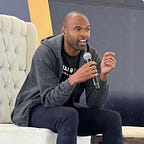UBI: A Boon for Big Business, Not Just the Needy? Examining the Walmart, Amazon Angle
Every week, new data emerges solidifying the effectiveness of Universal Basic Income (UBI) across diverse regions. While this excites advocates like us, it might surprise others. This growing evidence provides the movement with a solid foundation for future legislative pushes.
However, popular support alone won’t propel UBI forward. The biggest hurdle lies with major employers who heavily rely on minimum wage workers — think Amazon, Walmart, McDonald’s, and the like. These giants need convincing. But here’s the twist: UBI could actually benefit them significantly.
Consider Walmart. If just 10% of UBI recipients spend their stipend there, the company could see an additional $20–40 billion each year. Amazon stands to gain similarly. And where will all this income be stored and managed? Banks like Chase, Cash App, and PayPal are ready to step in.
And that’s exactly what we are seeing in our basic income pilots. Poor people buy things from the cheapest providers, and who are the cheapest providers? Amazon, Walmart, McDonald’s, Dollar General, Kroger.
So, why the hesitance from these corporations? They fear increased wage demands. This apprehension, however, overlooks a crucial aspect: UBI primarily benefits the poorest Americans, who are often unable to work due to homelessness or health issues. Their UBI income becomes a pure spending boost.
What about the rest, those typically employed in minimum wage jobs? Will they quit en masse or demand higher wages with around $1,100 per month in UBI? Unlikely. The American poverty line remains shockingly low, meaning even with UBI, financial struggles persist. People wouldn’t quit out of newfound wealth; they’d quit for better opportunities.
Ultimately, the success of UBI hinges on understanding its wider impact, not just on individuals but also on businesses. While concerns like wage hikes are valid, the potential economic benefits for major corporations like Walmart and Amazon cannot be ignored. Perhaps, by framing UBI as a win-win situation for both individuals and businesses, we can unlock its true potential to alleviate poverty and create a more prosperous future.
